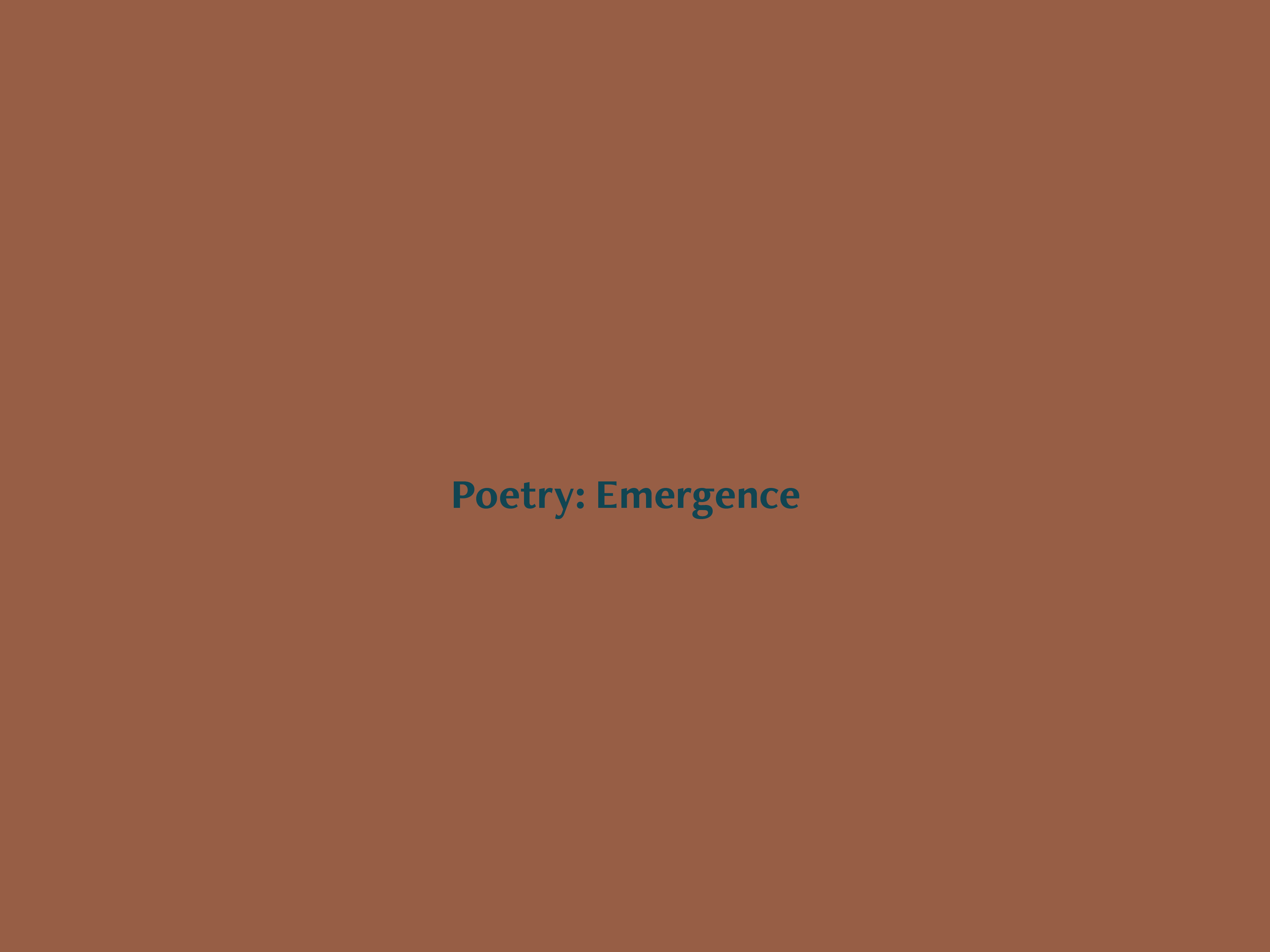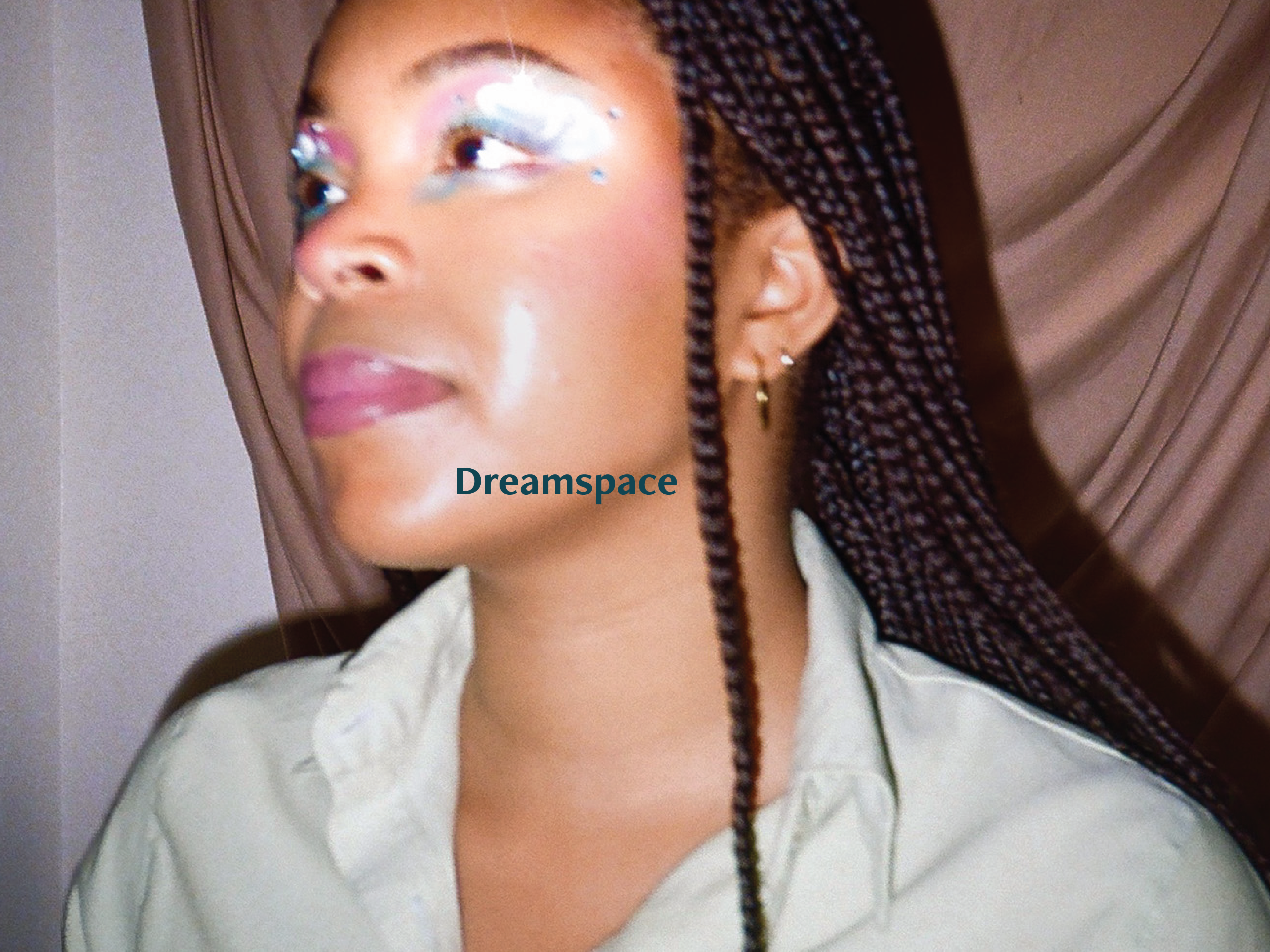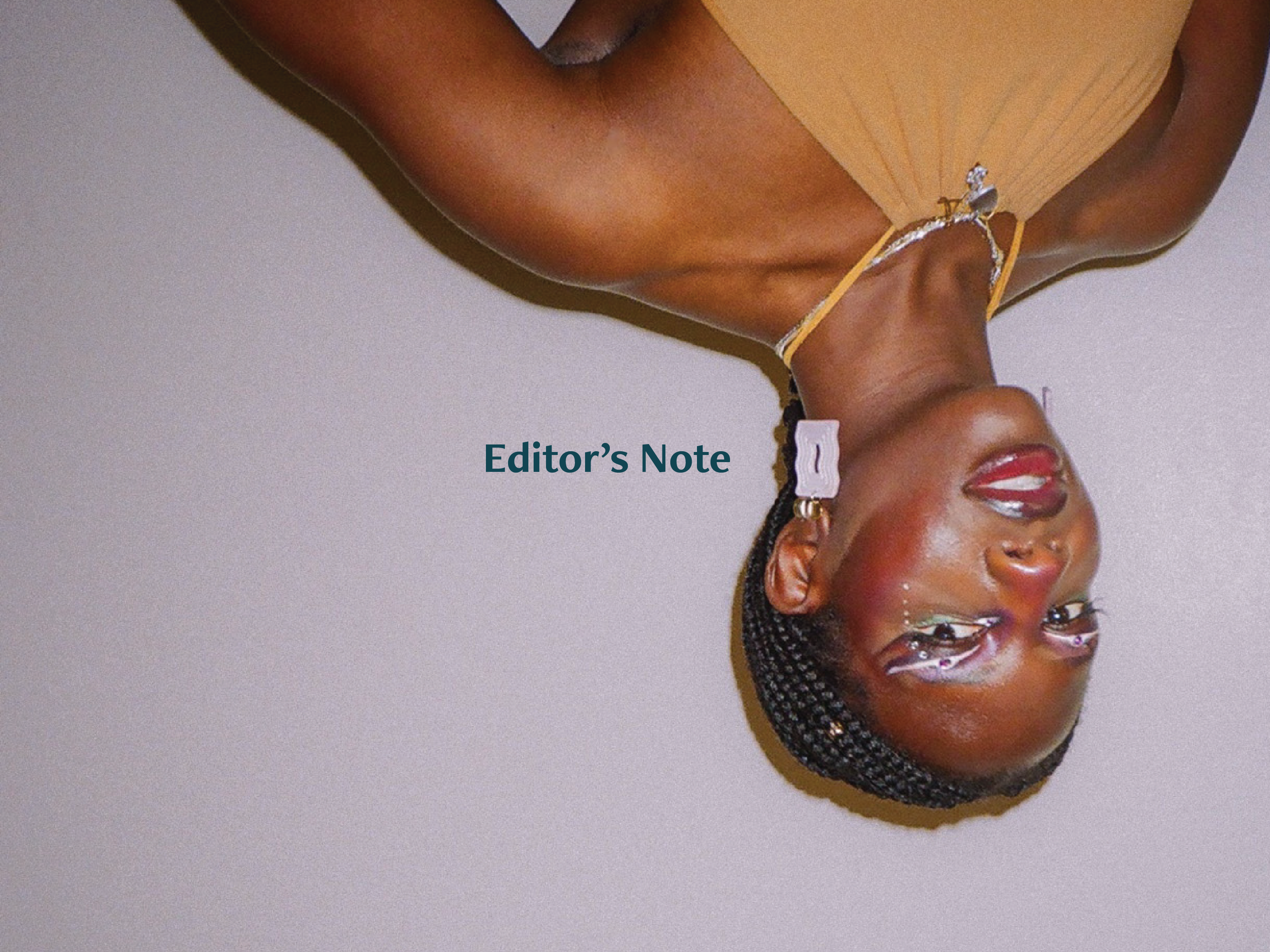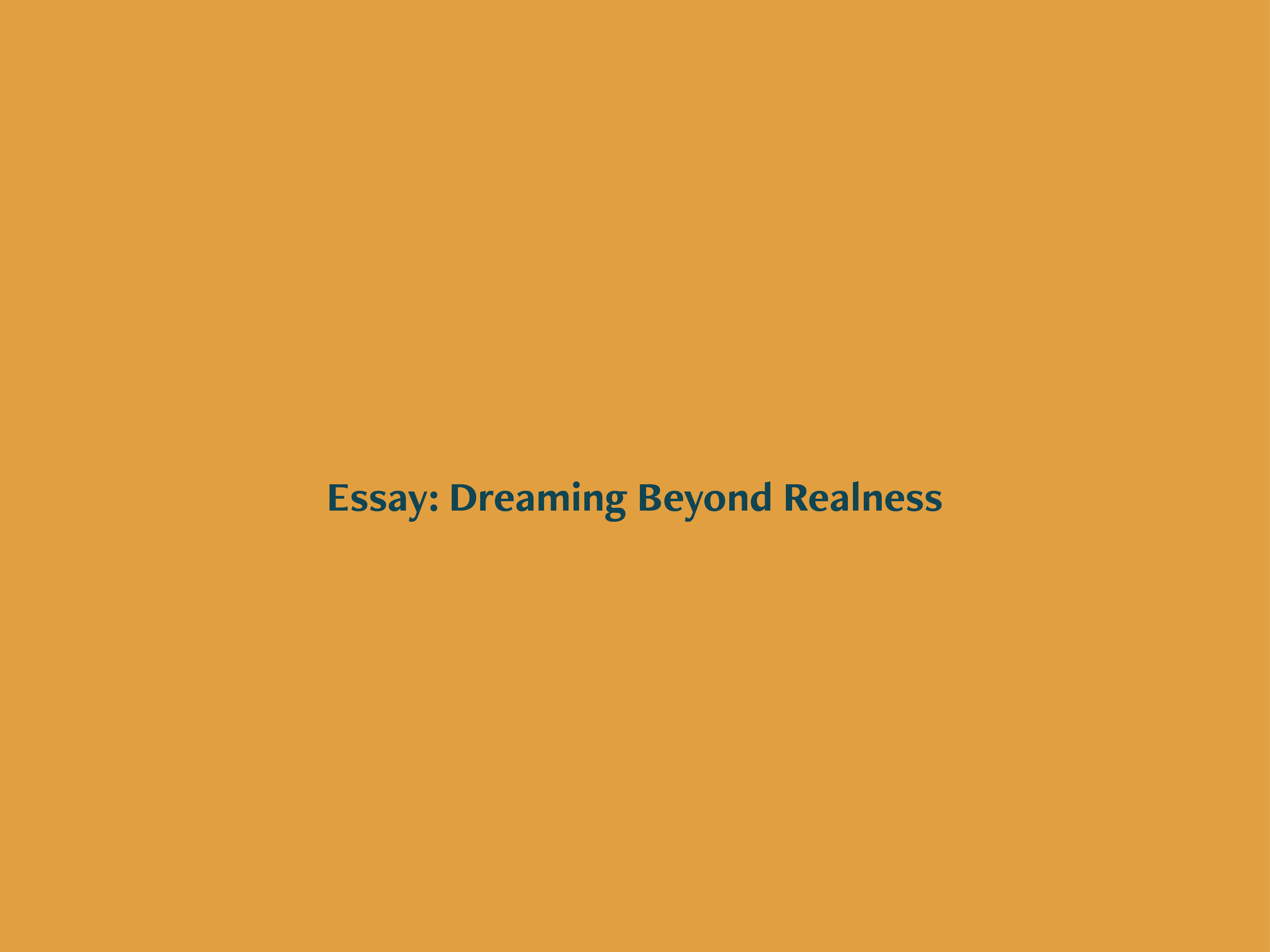fantasy, faith, and magical realism
by: Adesuwa Agbonile
On August 27, 2022, Lesa Pamplin shared a story on Twitter: during a volleyball game between Duke and Brigam Young University, Rachel Richardson - Lesa’s goddaughter, and the sole Black starter for the Duke volleyball team - was called a nigger by a person in the stands every time she served. Soon after Lesa’s tweets, BYU tweeted an apology to Rachel, and banned the accused fan from future games.
Most everyone agreed that Lesa's story was bizarre. For some people, the story’s bizarreness sparked outrage. How could BYU have allowed this to happen? For others, it sowed doubt. Did this … actually happen?
The only Black girl on a volleyball team is verbally abused with racist slurs, over and over, in the year 2022. And no one did a single thing? This seemed – impossible. A fantasy.
---------------------------------------------------------------------------------------------------------------------------------------
Fantasy /ˈfan(t)əsē/ :
The faculty or activity of imagining things, especially things that are impossible or improbable.
An idea with no basis in reality.
--------------------------------------------------------------------------------------------------------------------------------------------------------
Eloghosa Osunde’s debut novel Vagabonds!, a whorling collection of magical stories centered around the queer people that populate Lagos, opens with a similarly fantastic sports story. How it goes: in some vague time Before Now, India beat Nigeria 99-1 in a soccer match. Every time one of the Nigerian players went near the ball, it would become something else. Reports vary as to what this something else was – some saw a snake, some saw a lion.
Uncle Anjos – the one telling this story in Vagabonds!, to his nephew Thomas – says that actually, the ball kept doubling, and then tripling, until there were so many balls, the Nigerian goalie could not keep track.
Thomas believes this story, and treasures it – along with all the other stories that Uncle Anjos tells him. Stories about men who can conjure rain with a snap of their fingers. Unsuspecting people who pick up calls from unknown numbers and find themselves bleeding from their ears and noses. Whirlwinds that appear in the center of a market, swallow one unlucky victim, then vanish.
Thomas and his Uncle understand these stories are impossible, improbable. They believe the stories, anyway. They have faith, anyway.
This belief changes their perspectives. Thomas understands that “at any given time, another reality could override his own. It wasn’t a matter of whether it was happening or not, it was more about whether you were willing to see it.” (22) Believing in the fantastic means believing that there exists various, shadowy things – spirits, ghosts, gods, demons, worlds, structures – lurking just beyond our vision.
This is a scary thing to believe. It changes the way one moves through the world. When Thomas leaves his hometown of Benin for Lagos, he walks with caution. One misstep could mean tumbling into another world.
And then, one night, Thomas googles the 99-1 soccer match. The results are jumbled and bizarre; Thomas begins to doubt that the story is true. He begins to wonder – what else was Uncle Angos making up? Which one of the man’s stories were just tall tales?
Thomas begins to lose his faith.
--------------------------------------------------------------------------------------------------------------------------------------------------------
Two weeks after the BYU v. Duke volleyball game, BYU issued another statement: after a thorough review of video and audio recordings, and interviews with more than 50 people attending the event, they could not find any evidence corroborating Rachel Richardson’s claim.
In other words: the story that Lesa Pamplin told was false. An idea with no basis in reality. She had conjured up a fantasy.
In other words: begin to lose your faith.
--------------------------------------------------------------------------------------------------------------------------------------------------------
The fantastic can be unsettling. Strange, to consider that there might be invisible realities running parallel to whichever one you inhabit. Bizarre, that there might be worlds filled with strangeness and spirits that you cannot picture; hovering somewhere above you or beside you or beneath you, out of sight, unable to be touched.
The real, practical ramifications of these ideas are frightening. Acknowledging that different realities run parallel to your own is also acknowledging that at any point, a member of your family could be whisked away by a tornado. Believing in the fantastic is frightening.
Believing in the fantastic means loosening our grip on what we perceive as ‘real’ and ‘true’. A world this fluid is also less legible. More difficult to navigate. Impossible to dominate. If you are interested in domination, control, wielding power over people – fantasy is something to be eradicated.
This is why white supremacist thought is so couched in categorization – white Europeans understood that one way for them to control the world was to define it. White supremacist logic necessitates circumscribing the ‘real’ – and then refusing to accept anything beyond those boundaries as ‘reality’, and relegating the un-defined (that is, un-defined by them) to the realm of ‘fantasy’.
This gesture – defining reality, pushing away fantasy – can be cathartic. There is a type of release, a psychic exhale, that comes with unlocking yourself from belief in things you cannot see or prove. A relief from the precarity. A comfort, to be certain that the only things that exist are the things that you know to exist.
In the replies of Lesa Pamplin’s tweets, the same type of exhale - people crossing their arms smugly, saying, of course. Of course it wasn’t true. The ‘official’ confirmation that Pamplin’s story is false gives her doubtful audience an easier reality to settle into. Because what would it mean if the impossible - a black girl being called nigger, nigger, nigger, no one stepping in - was possible? Could and did exist? What would that kind of rupture in reality force us all to contend with?
It can feel safer, easier, to decide that what you can see and confirm must be all that there is.
--------------------------------------------------------------------------------------------------------------------------------------------------------
I find Lesa’s story improbable, and fantastic. It is bizarre, to picture someone in the stands of a volleyball game, screaming nigger, repeatedly, at the only Black girl on the court.
I also believe that it happened. I was not at that game. I have no proof Lesa is telling the truth. But still – I have faith in her story.
Acknowledging that different realities run parallel to your own is also acknowledging that at any point, a member of your family could be whisked away by a tornado. Believing in the fantastic is frightening.
In Vagabonds!, Uncle Anjos was not always a ‘true believer’ – at first, he finds the fantastic stories that his family are telling him bogus, and the storytellers uncivilized.
And then a rainmaker comes to his house, and conjures an entire storm in less than ten minutes, and then makes it dissipate. Afterwards, he tells Uncle Anjos – I did this to give you faith. He says: “You’re going to need faith. You’re going to need to root your eyes in places other people can’t see.” (18)
In Lagos, after Thomas begins to lose his faith, he remembers another story that Uncle Anjos told him – apparently, there is another world underneath the market at night. If you bend over and look between your legs after the sun sets in the market - you might fall in to the upside-down world.
Thomas, newly emboldened, goes to the market and waits for the sun to set. He spreads his legs apart, bends down, wraps his palms around his ankles, and opens his eyes to look between his legs. And then – he is promptly pulled into another dimension. An upside down world, a Lagos-not-Lagos, where spirits abound and bodies can be switched out and vagabonds (the official terminology for queer people used in Nigerian criminal code) lurk behind every corner.
Osunde’s writing is gripping, staccato, and feels remarkably present. She writes queer Nigerians who are shapeshifters, mask-wearers, fairy god-girls – they inhabit a world that is fantastic, but also deeply familiar, indelibly real. She is writing a real place; real people. All of the elements of magic in the book only serve to show us how the realities of queer Lagosians are already soaked in the fantastic, how they already exist in spaces-between, in not-quites, in upside-down shadow-worlds. She is reminding us of all the ways the fantastic is right here with us, all the parallel realities that are visible between our legs if we bend over and look. She is coming into our houses and conjuring rain.
I finished reading Vagabonds! right before I read Lesa’s tweet. Osunde had reminded and reified my belief in fantasy – so even when people were doubting her, I had faith. Even when BYU said they found no evidence that Lesa’s story was true – I had faith. I had already done the work of rooting my eyes in places other people could not see.
--------------------------------------------------------------------------------------------------------------------------------------------------------
I am drawn to and thrilled by creative works that conjure rain in the house of my mind, and leave me feeling awed by everything I do not know and cannot understand. Works like, of course, Osunde’s Vagabonds!, but also – Akwaeke Emezi’s Freshwater. Helen Oyemi’s Gingerbread. The collected works from Into the Black Fantastic, curated by Ekow Eshun. The film Atlantics, directed by Mati Diop. Works like these, that utilize magical realism, surrealism, afro-futurism – they give me faith in the fantastic, and help me break my mind away from white supremacist, colonialist thinking about the ‘real’.
Even more importantly – they help me make my own life, my own reality, legible to me.
Hortense Spillers and bell hooks both teach me that Black women in the white imagination exist in the intersection of paradox - somehow both mammy and slut, invisible and hypervisible, feminine and masculine.
Being coded as a Black woman means walking with the same caution Thomas employs in Vagabonds!; knowing that at any moment, the wrong person could look at you sideways and you would shapeshift into a monster before their eyes. Or that you could find yourself standing in a crowded room, and someone could begin to scream racial epithets at you, and nothing would be done. I read Lesa’s tweets and I thought – sure. Something like that could happen to a Black woman. Another reason I want – need – to have faith in Lesa’s story is because of my own position in the world. I believe in fantasy because it is helpful, if you are a Black woman, to believe that you are real, that you do exist, even if you are impossible or illegible to the white gaze.
--------------------------------------------------------------------------------------------------------------------------------------------------------
One last thing.
In Thomas’ story, it doesn’t end up mattering whether he has faith or not. He is losing his faith when he gets swept up into the upside down-market world. Uncle Anjos has no faith when he sees rain in his house. Having faith in fantasy does not change its materiality – the upside down world is there. The water is raining.
Having faith is about changing your own perspective on the world. When thinking about this, I often recall Fanon’s essay This is the Voice of Algeria, from the book A Dying Colonialism.
In the early days of the revolution, imperialist French forces cut off access to the Voice of Algeria, a radio broadcast that Algerians used to get information about the revolutionary effort. Fanon describes the way families would get together and assign one person to lean into the radio console and try to make out words through the static. When eager onlookers would ask about what the broadcast said, they would try to piece together the information from what garbled message they heard; if they didn’t have an answer to the question they would make something up.
Fantasy. A second reality running through static and noise. And it was precisely this dis-reality, this second reality, that gave the Algerians the confidence and steadfastness they needed to conjure revolution.
Believing in the fantastic doesn't mean renouncing truth. It means being open to the possibility of parallel realities - being willing to see the upside down world that exists alongside our own. BYU says that no cameras picked up the racist epithets thrown at Rachel Richardson. What if we believe that racist epithets were thrown at her anyway? What if we have faith in Black women and choose to root our eyes in places that neither we, nor BYUs cameras, can see?
This is not to say that truth isn’t a valuable thing to seek out. But having faith is an acknowledgement that what we see as ‘true’ is not all that is out there. Having faith means slackening our grip on reality, eroding the shackles of the rigid, empiricist, white supremacist patterns of thought that have twined their ways around our mind. When we believe in the unreal, we open up our perspectives; we open up our minds. We are able to have more truthful, more open conversations with each other about where we are and what we need. Believing in the fantastic can make the world more scary – but it can also make the world more interesting, more vibrant, more beautiful.
Which is why I choose to have faith in fantasy. I seek out words and images and sounds that embody fantasy, that alert me to the invisible and the upside-down. I release my grip on the real. I welcome rain-conjurers into my home.




